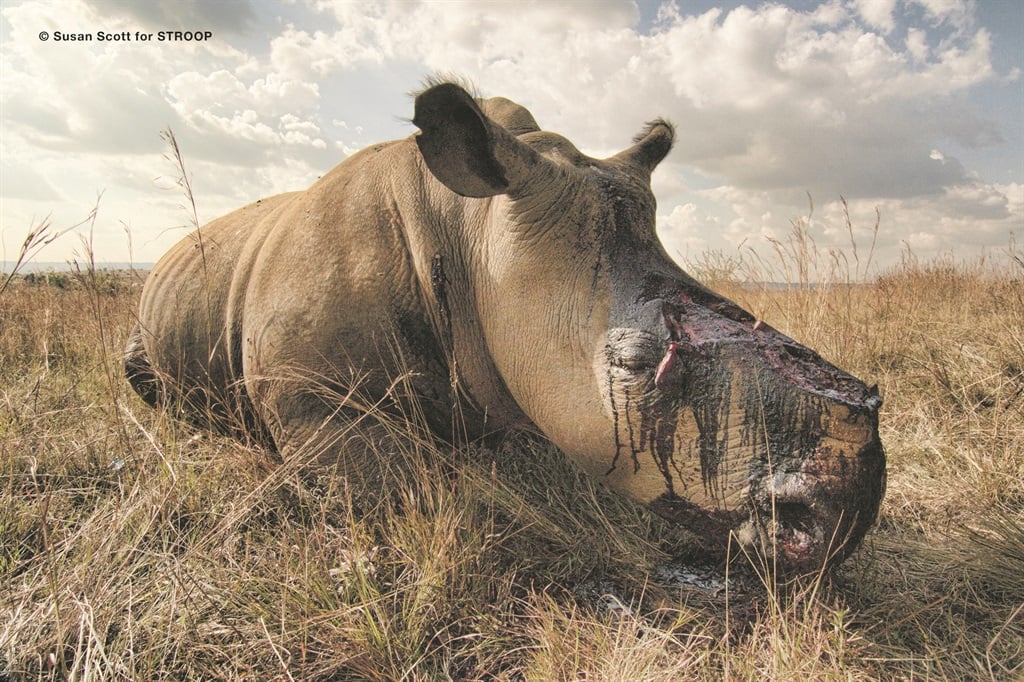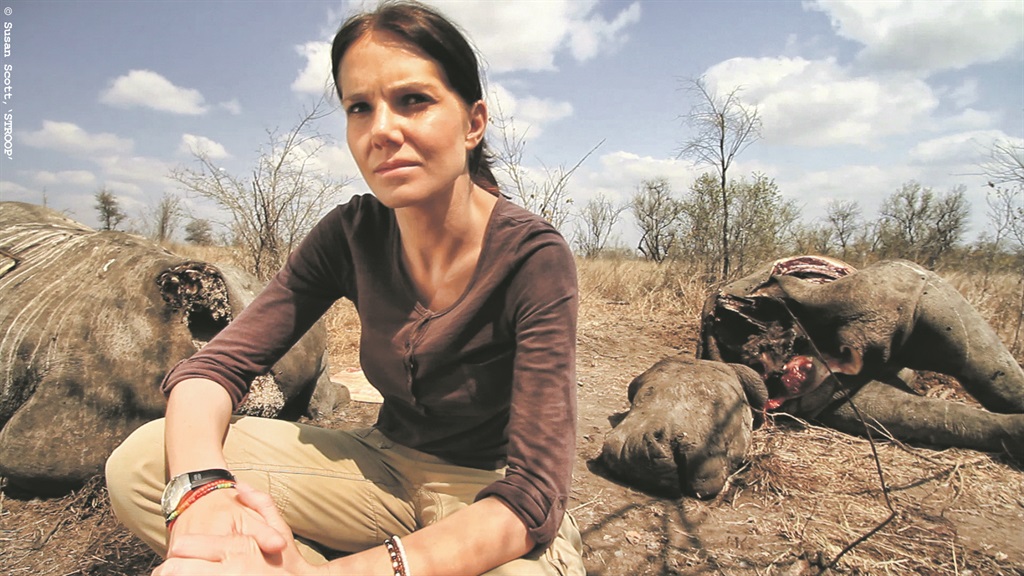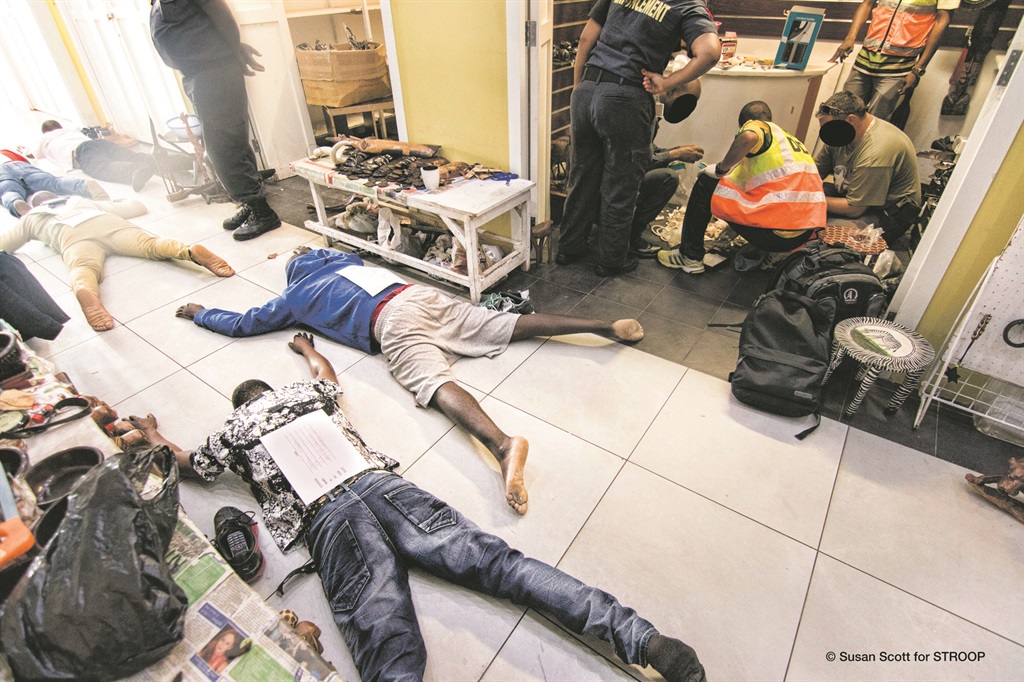
Film maker Bonné de Bod spent four years investigating the rhino horn trade. What she and her crew learnt makes it clear that it is up to all of us to save these animals that are a big part of what makes our country so special
‘When are you screening the film in Asia?”
This question was not asked in the US, but it was asked at every screening in Europe and South Africa.
It’s an important question, but it just wasn’t on the radar for the Americans.
Rather, they asked if we could stop labelling rhinos as “South Africa’s rhinos” because, they said, they belong to the whole world.
And they’re right, of course. But the responsibility of protecting them falls to us in South Africa.
It was my first visit to the US for the film festival run of our documentary Stroop: Journey into the Rhino Horn War.
I had long heard of their independent nature, their desire to “go it alone”, their rewarding of innovation – and this US mind-set gave me hope that we need to stop waiting for Jackie Chan or Prince Harry to come riding into town to save the day.
Although their efforts outside South Africa are most welcome, I like the US approach of ownership and taking control of the rhino poaching crisis.
We initially embarked on a six-month project, but for co-producer Susan Scott and me, the journey into the poaching war became a four-year odyssey.
As storytellers, we had to dig deep to understand the complexities of the crisis so that we could tell the story that was out there on the ground.
The film has resonated with people around the world and has won a host of international awards.
But bringing the film home after its successful run in Europe and the US brought that question: “When are you screening this in Asia?”
Let me tell you about Asia. The demand for the prehistoric feature our rhinos carry on their face is insatiable.
Rhino horn is nothing more than a commodity over there as it has been used for thousands of years for its “mystical properties” and the fascination still lingers.
During our undercover filming in Hanoi, the capital of Vietnam, we saw horn being worked and carved into jewellery and libation cups to be acquired as status symbols by rich Chinese tourists.
And, if that was not enough, the desire for rhino horn in medicine was confirmed by a Vietnamese oncologist at the top medical centre in the country.
We spent weeks trawling the city looking for a rhino horn user because, although we were told many use it, no one wanted to go on camera to tell us why ... except one woman, a cancer patient.
In her early 60s, she was diagnosed with breast cancer and her friends sought rhino horn to try to cure her.
In my interview with her, she told me that it was a very expensive gift – the most expensive she had received – and that it helped her body to cope with the symptoms of chemotherapy.
She believed it “detoxified and strengthened” the immune system.
Many traditional Chinese medicine doctors we interviewed believe in the medicinal properties of rhino horn.
And there seems to be a cancer epidemic in Vietnam – 200 people die every day from the disease and 400 receive the news that they have cancer.
If we put it another way, friends or family members of 400 people will daily be scouring all avenues for rhino horn. Think of that growth exponentially. It’s scary.
And, while the search for rhino horn continues, South Africa is losing three rhinos a day to poaching.
We have lost more than 7 000 rhinos since 2011 and we aren’t even certain how many wild rhinos we have left.
I’m not being controversial. Ecologists tell us that census counting is an exact science.
For example, the Kruger National Park’s white rhino population numbered between 8 700 and 12 200 in 2010 when the poaching crisis was in its infancy.
When you think white rhinos numbered only 2 000 in the park a decade earlier, that’s quite a growth rate. It makes you wonder what it would be now if there hadn’t been any poaching.
An annual census count is done at Kruger to keep a handle on population numbers and, after many years of asking to see how it works, I accompanied the scientists doing the census in October 2017.
The collection of data was eye-opening and I spent weeks scouring scientific papers on wild animal census counts.
Kruger’s aerial flying method was impressive to see first-hand. But the park’s ecologists who did the count 18 months ago have still not released the numbers to the public.
I have asked the environmental affairs department for the results, to no avail.
China recently made headlines around the world when it announced that it was reversing its own 25-year ban on using rhino horn for medicinal purposes in state hospitals.
That was a strong statement from a government and it will be pretty hard to convince anyone otherwise. So, how are we ever going to stop or meet that desire?
I’m not in any way saying that we should stop demand reduction campaigns, but we need to accept that demand reduction is a long-term plan.
We need to talk short term. Our wild rhinos will go extinct in the next few years if we keep focusing on the demand side.
If you think that’s impossible, this past year our southern white rhino cousins – the northern white rhinos – were officially declared extinct.
Not just extinct in the wild, but, after the death of Sudan, the last male in captivity, entirely extinct. So, yes, our focus should be here.
First, we need to protect our wild rhinos, especially in the two hardest-hit areas, the Kruger National Park and Hluhluwe-Imfolozi Park.
I emphasise “wild” as these are the state’s rhinos – the rhinos that roam our national and provincial parks that belong to all of us.
We need to help and support not only financially, but also morally. It’s a tough fight and the rangers on the front line should be continually acknowledged.
Second, we need to prosecute and convict from the poacher on the ground all the way up to the syndicate bosses. It is an organised network and it has to be disrupted.
Too many poachers are caught for a second or third time; too many traffickers are getting off with a fine; and too many syndicate leaders are out on bail.
We need a justice system that works for the victim and not for the criminal.
Third, we need to take our heritage more seriously. This is an election year. How many politicians, if any, will stand up for our rhinos – let alone our elephants, lions and pangolins?
As South Africans, we are overwhelmed by many problems in the country, but it is our rich and diverse wildlife that draws attention around the world.
That is what makes this place we call home special. We have to stand up for it and demand more from the decision-makers and policy-writers.
It’s easy to look to the east because it diverts responsibility. But there’s no more time for that.
The solution lies here, with us.
De Bod is an award-winning television presenter and film maker. Stroop is available to download or stream this week via Amazon, Vimeo, iTunes and Google Play




 Publications
Publications
 Partners
Partners










